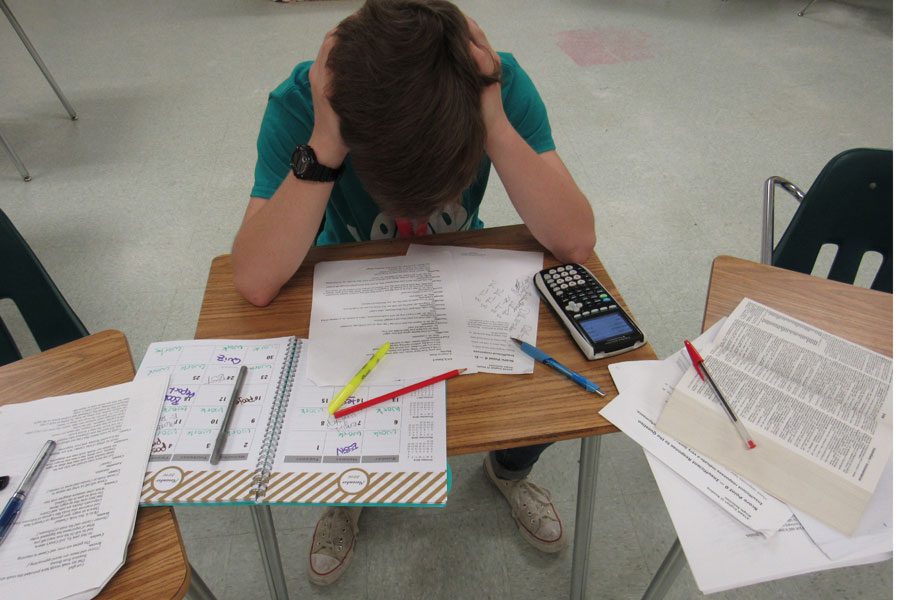Young adults struggle with pressures of school, work
Young adults often struggle under the weight of expectations.
October 14, 2016
The stress of joining the working world while still attending high school and trying to get into a great college is something that plagues most high school students. Teens and young adults of this generation have to take on adult responsibilities much faster than those before them, so it’s no wonder they are always stressed out.
For teens, preparing for college has become one of the most demanding responsibilities they are faced with. Because having a high school diploma doesn’t cut it anymore, teens are forced to expend themselves and take on just about all they can handle. College requires outstanding grades, volunteer hours, extra-curricular activities, and the list goes on. Also, the amount of money that is needed to attend a great school often times requires taking on a part time job.
Advanced classes, extracurricular activities and joining the working world is a lot to juggle and can be beyond exhausting. Many teens are forced to plan their future while maintaining a job and trying to enjoy their teenage years. They are pushed to take on more activities, expand their learning outside of school, and be more involved in their community.
An article written by Carolyn Gregoire in the Huffington Post explains how the current generation of teenagers are under more stress than even their parents were.
“Even before the pressures of work and adulthood set in, for most young Americans, stress has already become a fact of daily life,” Gregoire said. “And this sets the stage early for unhealthy behaviors and lifestyle choices that may increase the risk of developing stress-related health problems down the road. American teenagers are now the most stressed-out age group in the U.S., according to APA’s 2013 stress in America survey. While adults rate their stress at a 5.1 on a 10-point scale, teens rate their stress levels at 5.8.”
Young people are struggling with seemingly no help in sight. The best thing for schools or parents to do is adjust their focus more on the students’ understanding, rather than what they can produce. Students need to know that their parents and the community they live in care about their future.



